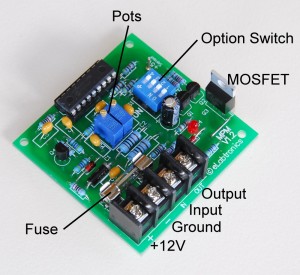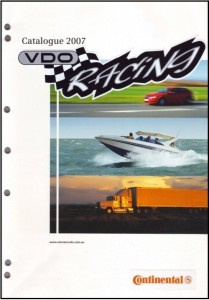eLabtronics Performance Modules
 Despite having in the past worked for an electronics hobbyist magazine, and having played with electronics for most of my life, I don’t consider myself to be any sort of electronics whiz.
Despite having in the past worked for an electronics hobbyist magazine, and having played with electronics for most of my life, I don’t consider myself to be any sort of electronics whiz.
In fact, I am painfully aware of how little I know and understand.
But that’s one reason I am so pleased that together with eLabtronics, we’ve been developing a whole range of off-the-shelf electronic performance modules.
Why their need?
Well, I’ve seen it so often. Someone will ask on a discussion group or in a car club for some simple electronic device. Like, they want to automatically turn on something when a certain voltage is reached. Or they want to flash a light. Or they want a simple timer.
Always – absolutely always – there’ll be an electronics whiz that will come out of the woodwork.
Say it’s the flasher that’s desired. The ‘whiz’ will say as fast as he can:
“Oh yeah. Just use a triple-five and a few passives.”
The person making the original requests always says: “Pardon?”
Then expert says it all again, although this time faster and maybe with a URL for a circuit.
The beginner is then likely to say something like:
“OK I think I am getting it now.
“So how do I make the flash rate variable?
“And did I say, I want to pulse the car horn. Is that OK? Will the triple five do that?”
The answer of course is: no, a 555 IC won’t be able to handle the required power. And neither will it like working in a car without any protection circuitry on its power supply leads….
In fact, for every ‘simple’ circuit request, there are always – but always – complexities that are easy to overlook.
So when I say that I started working with eLabtronics over 10 months ago – and the first product is being written about in AutoSpeed only this week – you get some idea of what goes into apparently simple designs.
Of course, the eLabtronics Multi Purpose Module isn’t just a flasher. Or a voltage switch. Or a timer. The same hardware will be able to do all these functions – and plenty more – just by software changes made by the company.
Which brings me back to the beginning. In the past we’ve covered a range of DIY modules in kit form. They were (and remain) very good designs – but the user had to build them. And many people aren’t confident or happy building electronic kits where just one, apparently trivial, wiring error can stop the whole thing from ever working.
The new eLabtronics modules are fully built and tested. Courtesy of their microcontroller design, they also have far more flexibility and options than those previous kits.
The ‘expert’ quoted above will be dismissive. But the electronics non-expert, who just wants to do all those apparently simple things, will love them….

 Julian Edgar, 50, has been writing about car modification and automotive technology for nearly 25 years. He has owned cars with two, three, four, five, six and eight cylinders; single turbo, twin turbo, supercharged, diesel and hybrid electric drivelines. He lists his transport interests as turbocharging, aerodynamics, suspension design and human-powered vehicles.
Julian Edgar, 50, has been writing about car modification and automotive technology for nearly 25 years. He has owned cars with two, three, four, five, six and eight cylinders; single turbo, twin turbo, supercharged, diesel and hybrid electric drivelines. He lists his transport interests as turbocharging, aerodynamics, suspension design and human-powered vehicles.


